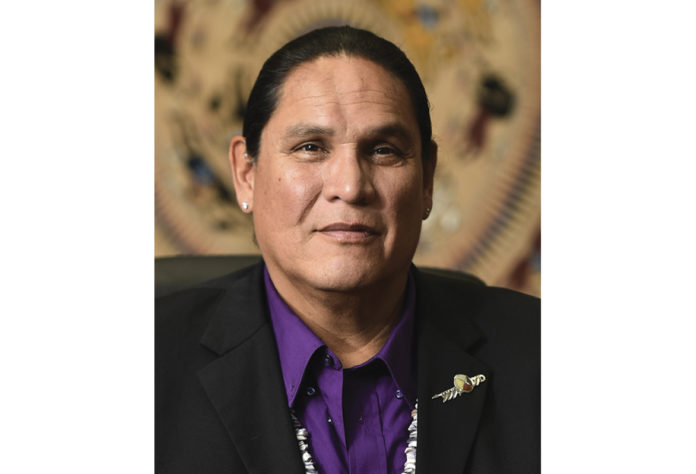by Ernest L. Stevens, Jr.
As with every new Congress and incoming Administration, Indian Country prepares to lay the groundwork to foster existing relationships and educate and build new relationships with key decision makers. However, the series of executive actions that were issued in the wake of President Trump’s inauguration elevate the importance of our work in Washington, D.C. Some have raised concerns that these executive actions will adversely impact the delivery of vital programs and services designed to meet the federal government’s treaty and trust obligations to Indian Country.
We take all challenges to treaty rights and tribal sovereignty seriously. Indian Country has faced direct attacks on the governmental status of tribal governments before the federal courts for several years now, first in the Brackeen v. Haaland case that challenged the constitutionality of the Indian Child Welfare Act, and later in the Maverick gaming case that seeks to undo the Indian Gaming Regulatory Act.
As I have repeatedly stated, these – and any similar attacks – are misguided and baseless. The status of Indian tribes as separate sovereign governments is grounded in history and the founding legal documents of this nation.
Before contact with European Nations, Indian tribes were independent self-governing entities vested with full authority and control over their lands, citizens, and visitors to Indian lands. The Nations of England, France, and Spain all acknowledged the sovereign status Indian tribes, engaging in treaties with the Native Nations.
Upon its formation, the United States acknowledged the sovereign authority of Indian tribes and entered hundreds of treaties to establish commerce and trade agreements, form alliances, and preserve the peace. Through these treaties, Indian tribes ceded hundreds of millions of acres of tribal homelands to help build this great Nation. In return, the United States promised to provide for the education, health, public safety and general welfare of Indian people. The U.S. Constitution specifically acknowledges these treaties and the sovereign authority of Indian tribes as separate governments. The Commerce Clause provides that “Congress shall have power to … regulate commerce with foreign nations, and among the several states, and with the Indian tribes.” By its very text, the Constitution establishes the framework for the federal government-to-government relationship with Indian tribes.
As we know, the federal government has fallen far short in meeting these solemn obligations. However, as we have done with every incoming administration and swearing in of a new Congress, it remains our job – the job of tribal government leaders nationwide, the Indian Gaming Association and all national and regional tribal organizations – to share this history, educate decision makers, and hold them to account.
To this end, we have built a strong foundation. For more than two decades now, Indian Country has consistently worked with lawmakers regardless of political party. We now have champions of Indian Country and tribal sovereignty in leadership positions throughout Congress. We will work with them and through them to clarify that nothing in the recent executive actions impacts the constitutional and foundational principles of tribal sovereignty and the separate governmental status of Indian tribes.
This foundation also extends to the newly confirmed Secretary of the Interior, Doug Burgum, the former Governor of North Dakota, who, during his eight years as Governor, fostered a strong relationship with the five sovereign tribal nations in the state. As Governor, Mr. Burgum held an annual “Strengthening Government-to-Government” conference with North Dakota Tribes. Those tribes, and more than 185 other Indian tribes nationwide, supported his nomination.
The Interior Department is the point agency within the executive branch to uphold the federal government’s obligations to Indian Country. However, we must work to ensure that all departments and agencies within the Trump Administration are held accountable to tribal governments. Just as state and local governments call on various agencies to supplement programs for transportation and infrastructure, water and power, housing and much more – tribal governments will continue to call on these same agencies for these same purposes.
Despite this solid base of understanding and support, we know that challenges will lie ahead. The Indian Gaming Association will remain vigilant throughout. We will work with our Member Tribes and the national and regional tribal government organizations to hold all elected leaders to account. We will constantly remind them of the history and constitutional standing of Indian tribes and their solemn obligations to Indian Country. We will bring every available resource to the table to fiercely protect tribal sovereignty and the continued inherent right of Tribal Governments to provide for their communities.
Ernest L. Stevens, Jr. is Chairman of the Indian Gaming Association. He can be reached by calling (202) 546-7711 or visit www.indiangaming.org.















































